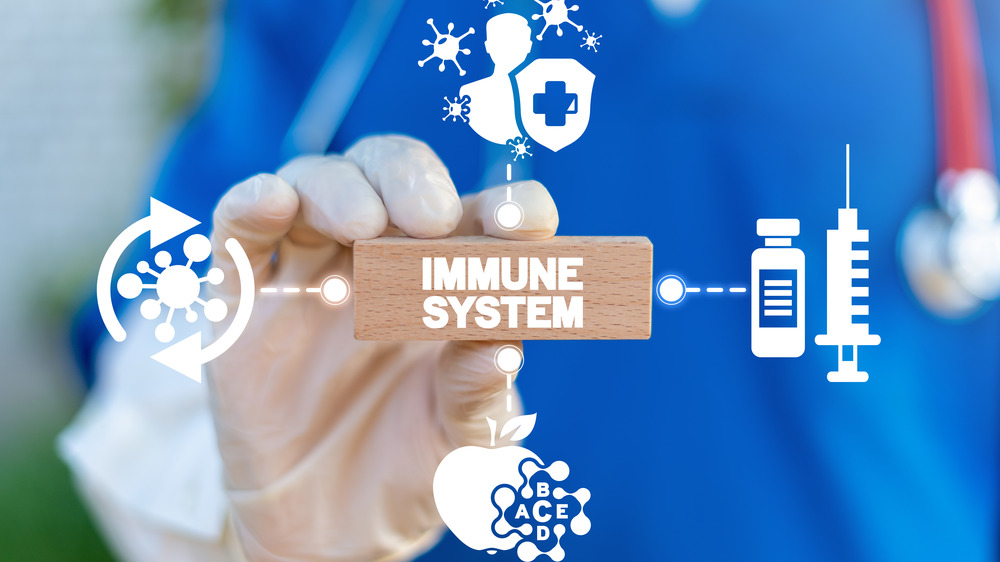The Real Difference Between Antigens And Antibodies
The human body's immune system is an intricate network of cells, tissues, and organs, which all work together to keep you healthy against unwanted invaders such as viruses and bacteria (via MedLine Plus). Essentially, your immune system is like a superhero with unimaginable strength and powers. When a foreign substance, toxin, chemical, or other invader enters your body, it has one goal — multiply and spread. Your immune system, on the other hand, will work to stop the invader in its tracks to keep you healthy. So how exactly is this done? While the immune system is very complex, there are a few basic tenets that will help you understand more easily, such as understanding the differences between an antigen and an antibody.
There are two types of antigens in the body: heteroantigens and autoantigens (via Verywell Health). Heteroantigens, aka foreign antigens, are the most common, and refer to molecules that originate outside of the body, such as viruses, bacteria, chemicals, toxins, and more. Autoantigens exist within your own body, and most often these do not trigger an immune response, unless the person is afflicted with an autoimmune illness, which is one's own body attacking its own cells.
Foreign antigens, when detected in the body, trigger an immune response. Think of them as the instigators. Antigens cause an increase in the number of circulating lymphocytes, a type of white blood cells which helps fight off infection (via Healthline). Once the antigen has been detected and the immune response has kicked in, that's when antibodies come into play.
Antigens and antibodies are important to vaccine creation
Antibodies are produced by the immune system, specifically B cells, in response to specific antigens. So, if a virus you've been infected with before tries to enter your body a second time, your immune system recognizes that particular antigen, and sends out an army of specific antibodies to neutralize the threat. This should sound familiar, as it is the basis by which many vaccines are created.
Many vaccines, including the annual flu vaccine, are created based on the premise of antigenic identification. Traditionally, many vaccines will use either inactive or weakened components of an antigen from a virus or bacteria, to "prime" an immune response. Think of it this way: The vaccine introduces a new antigen into your blood stream, and the immune system identifies it as a foreign invader and triggers the formation of antibodies to attack and destroy the invader. You may have symptoms, because it takes your body a while to create the proper antibodies. Now, the next time you come in contact with that antigen, your body will react more quickly and robustly to attack the foreign antigen.
While your body is fully capable of remaining strong and healthy, there are some things you can do on a daily basis to help support it. These include: not smoking, exercising regularly, eating a well-balanced diet, getting adequate sleep, and many other commonly-recommended health practices (via Harvard Health Publishing).

